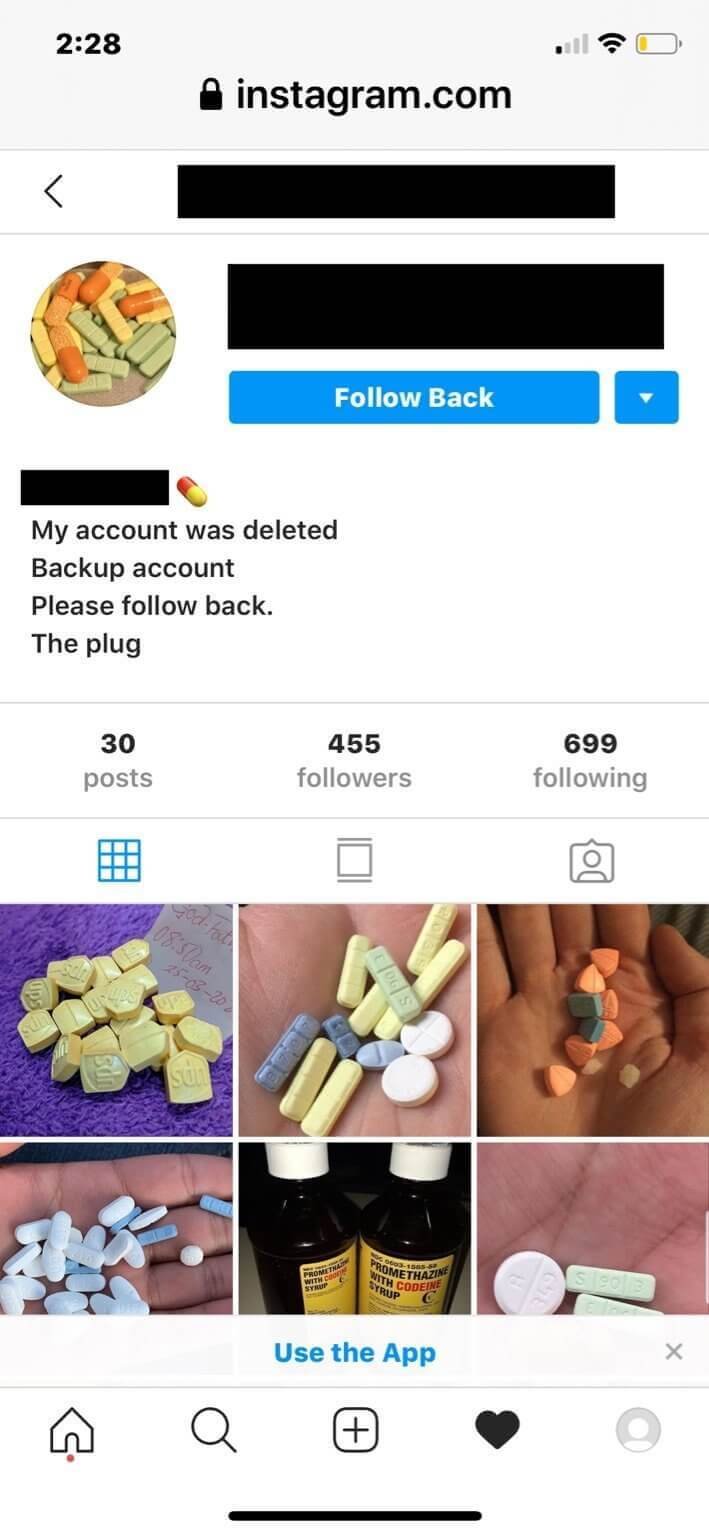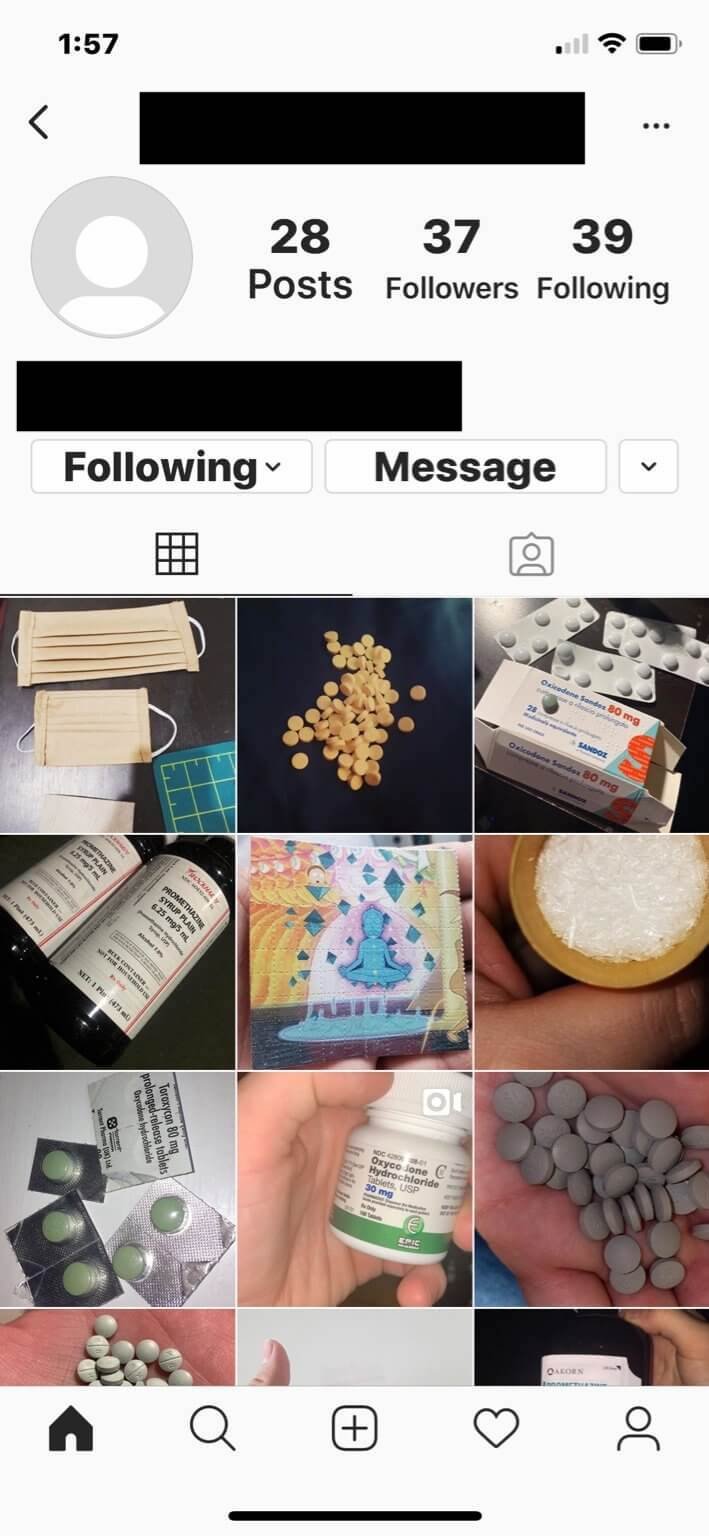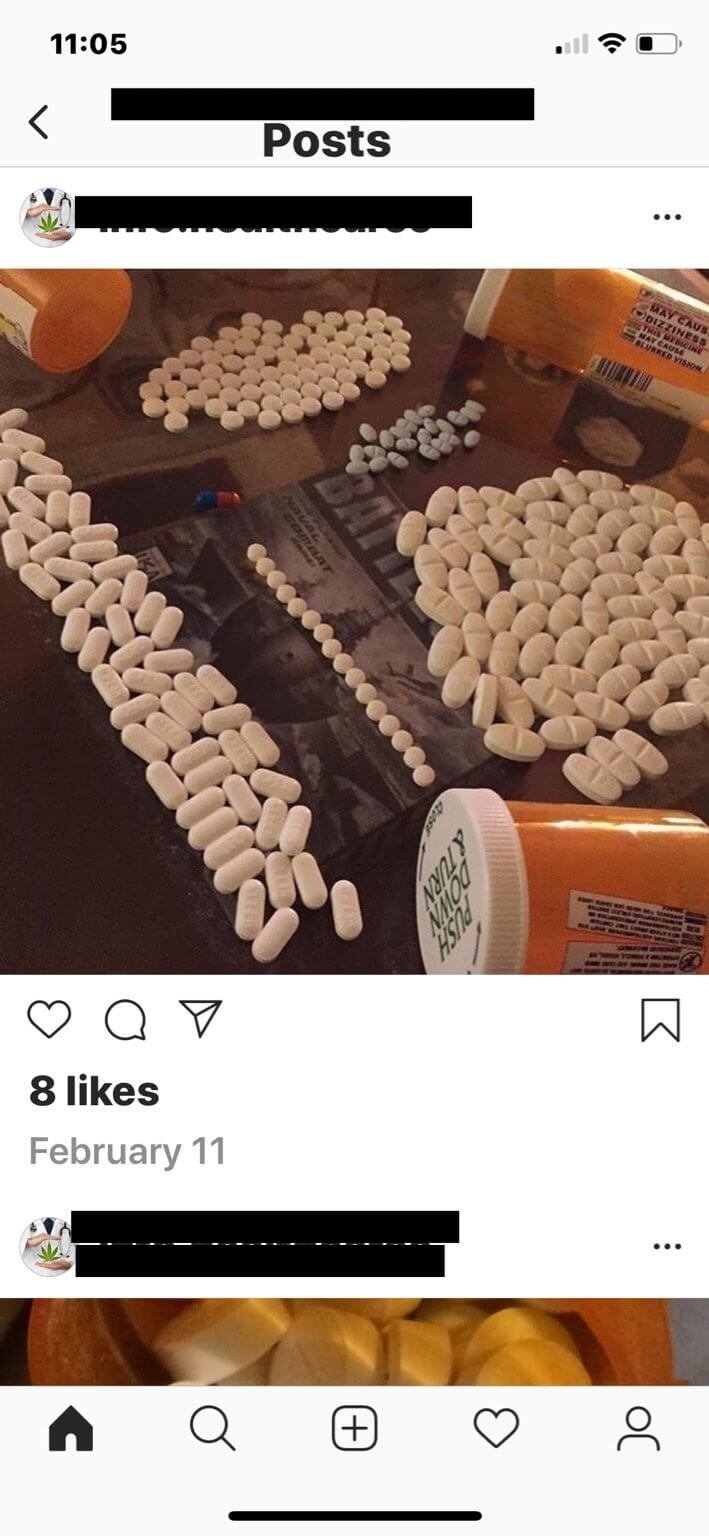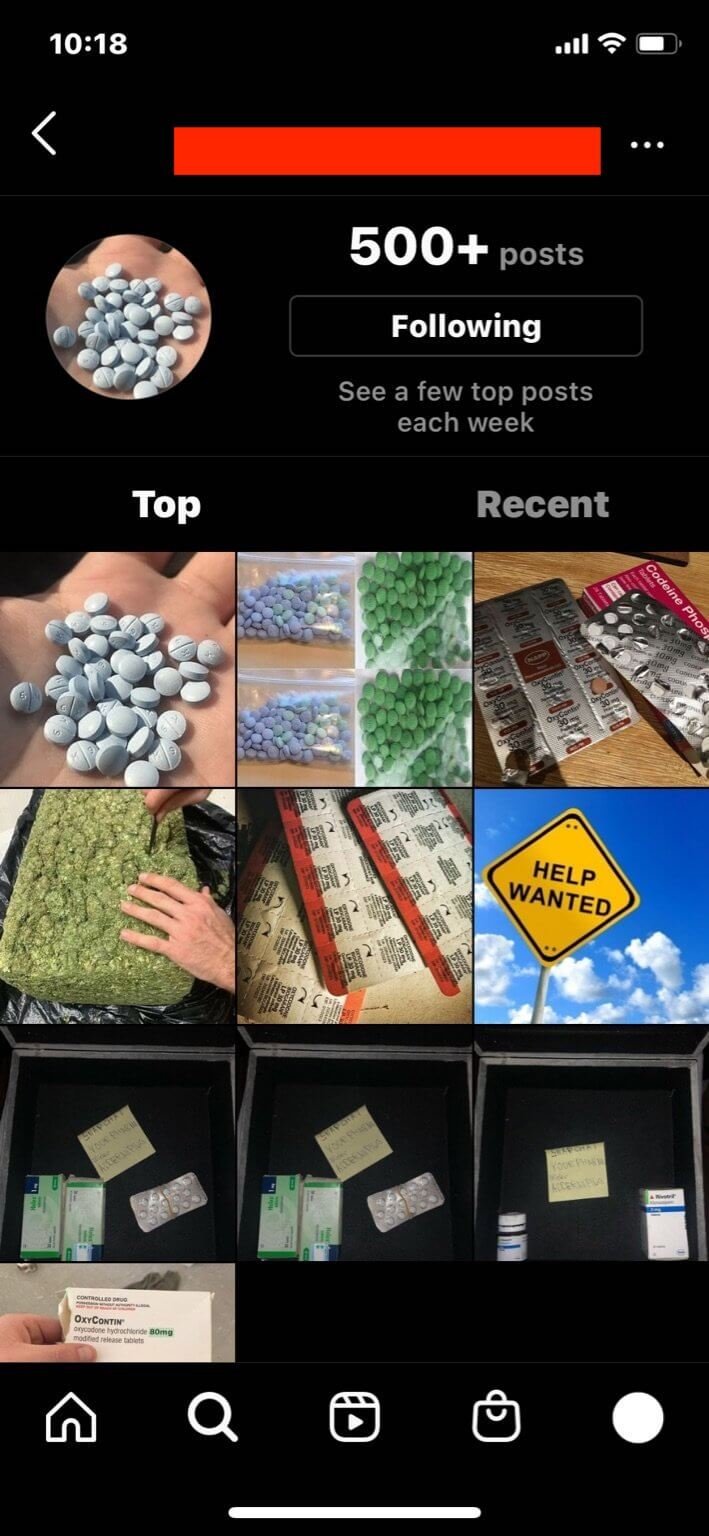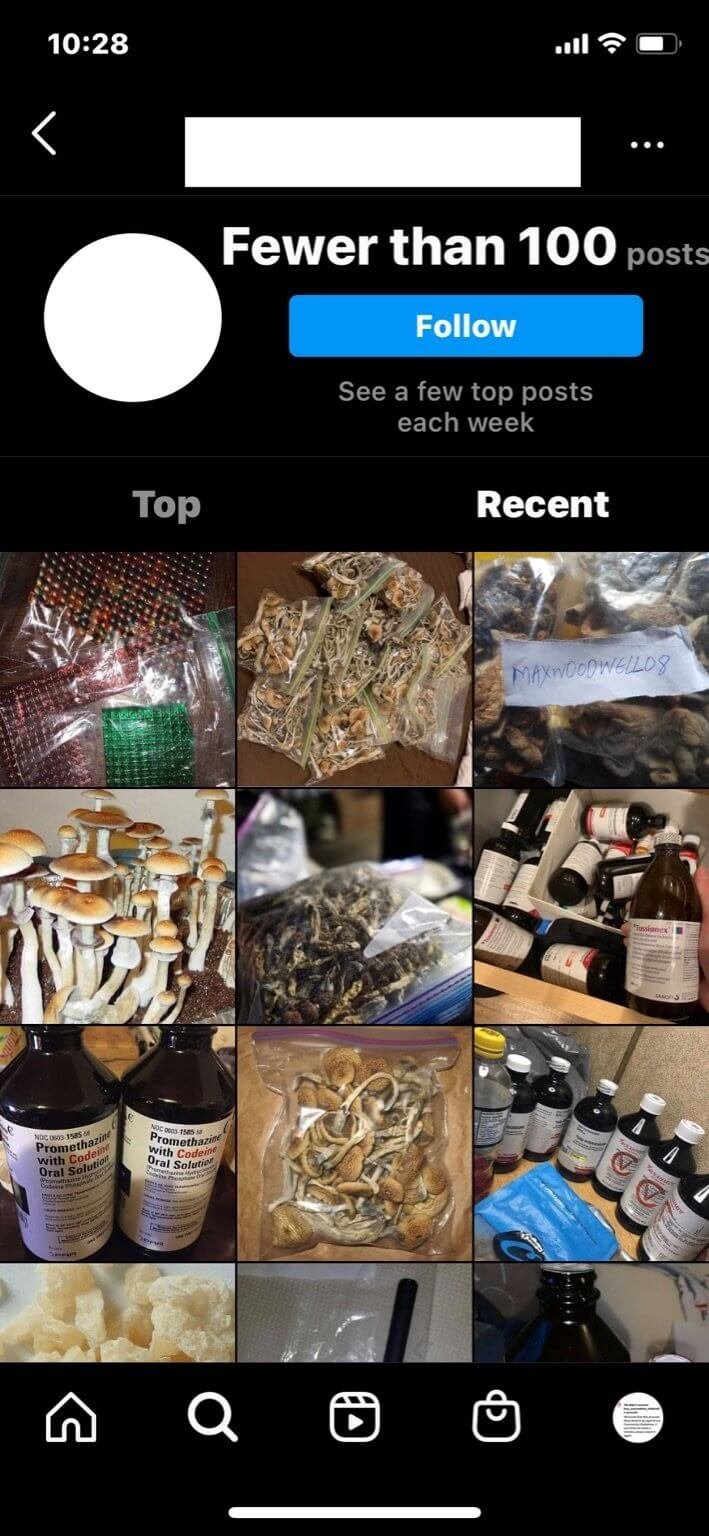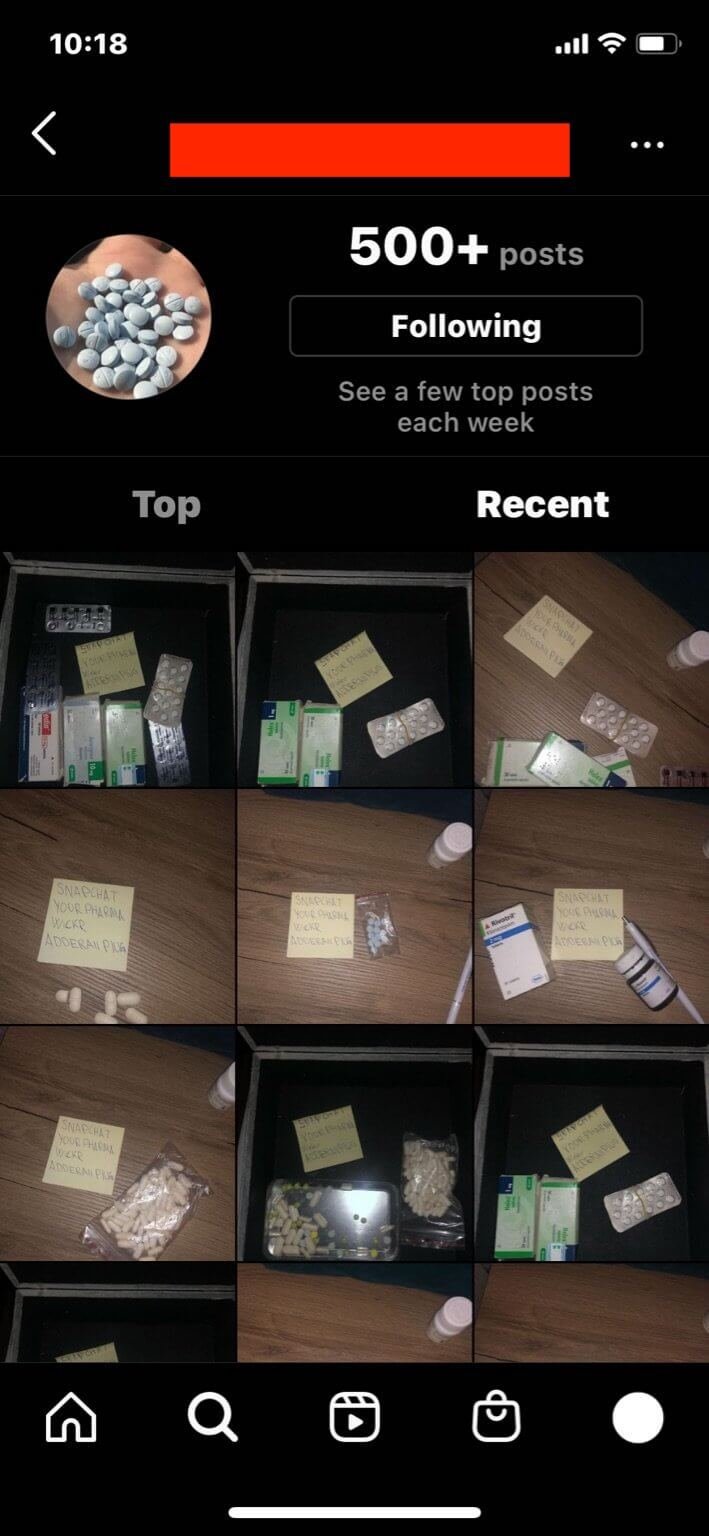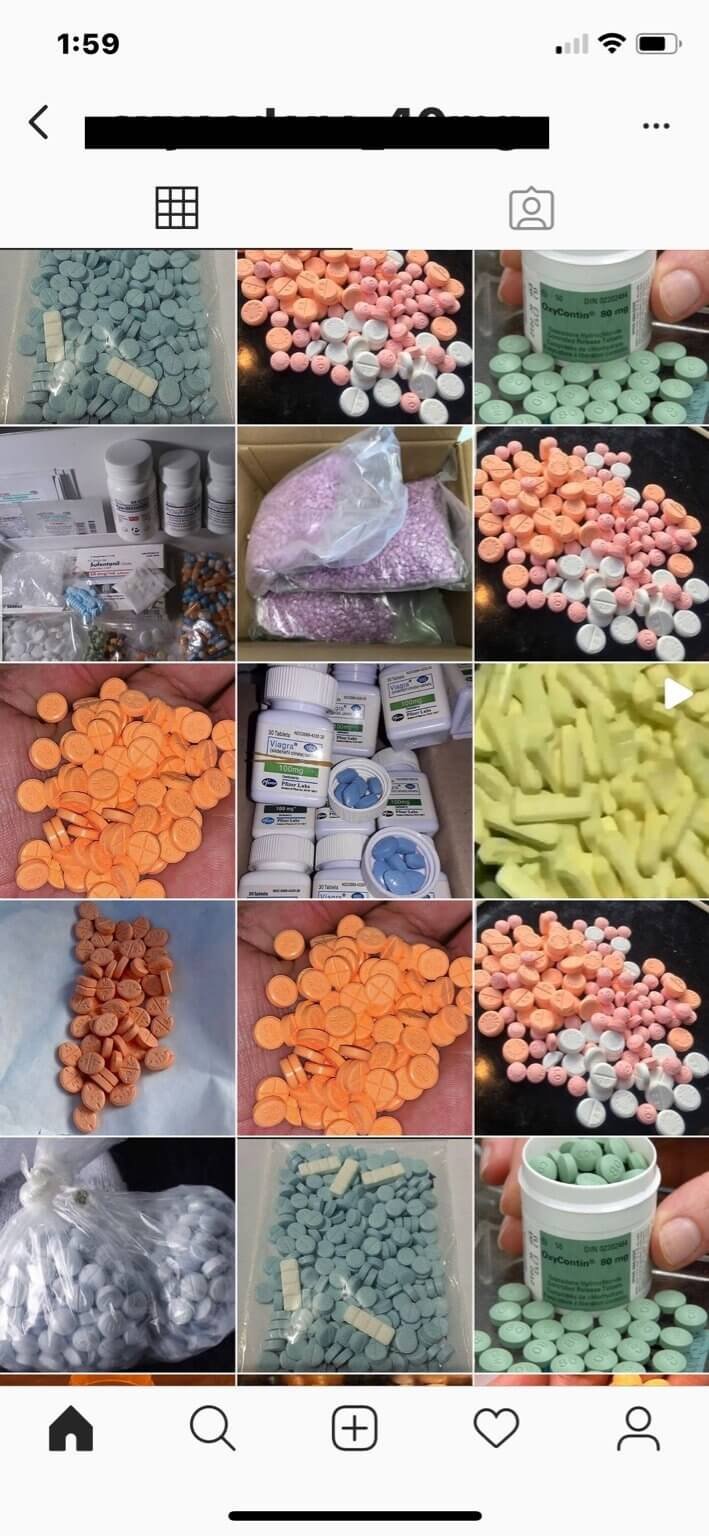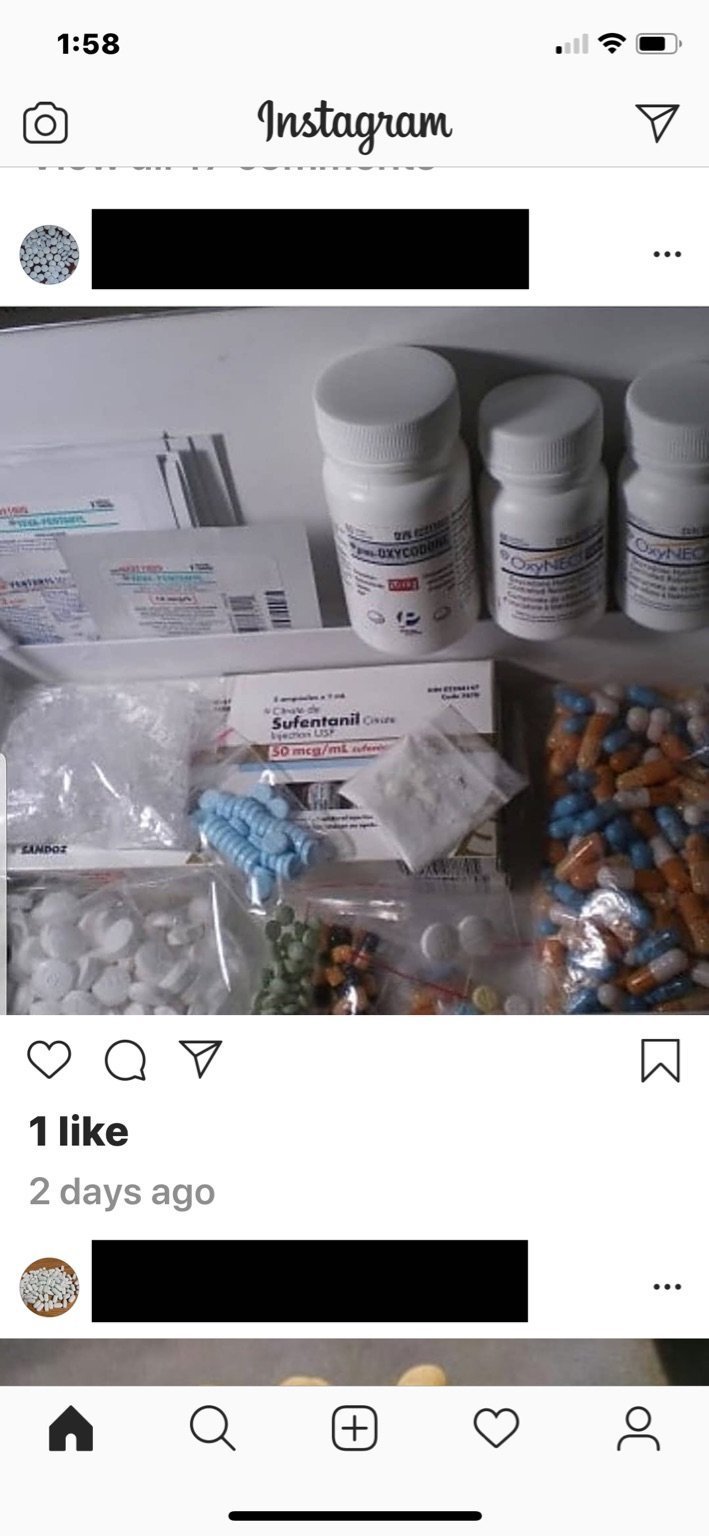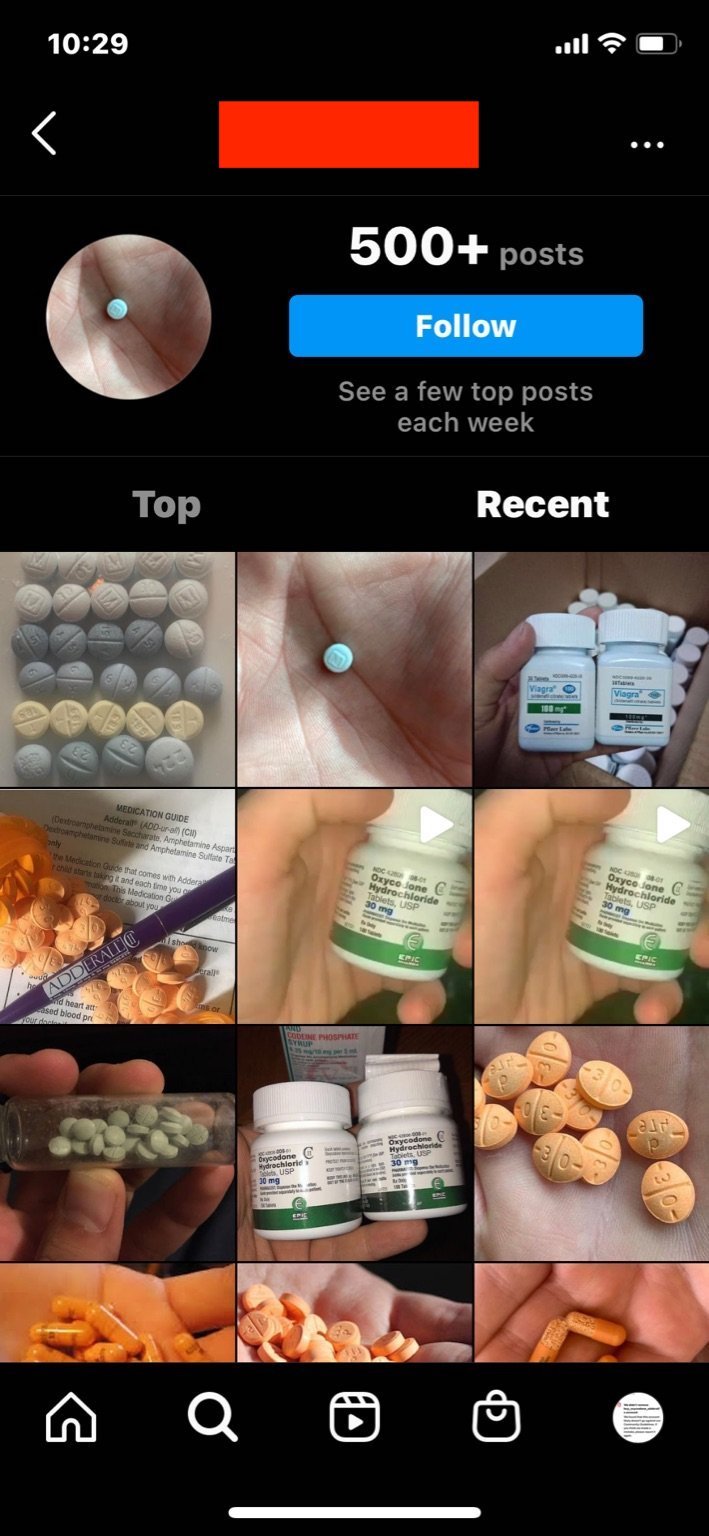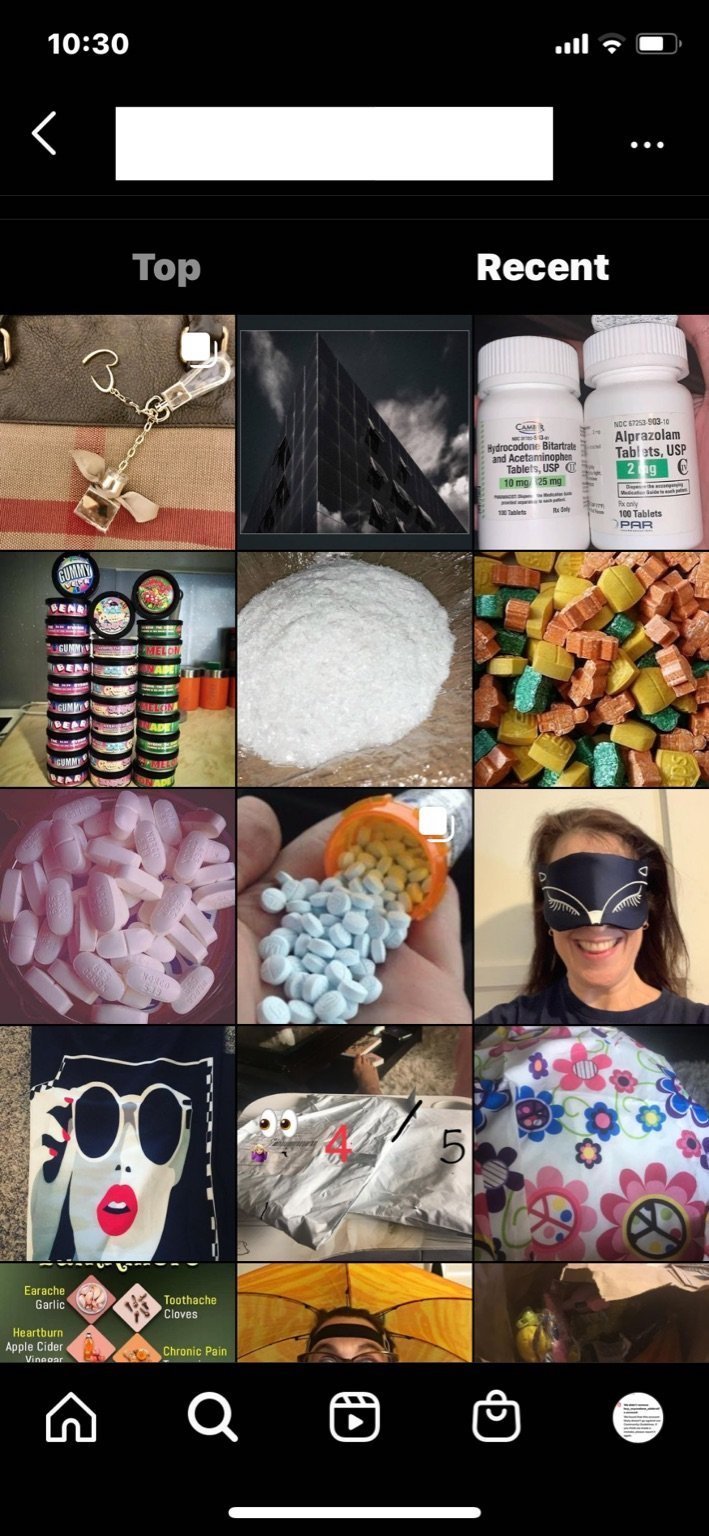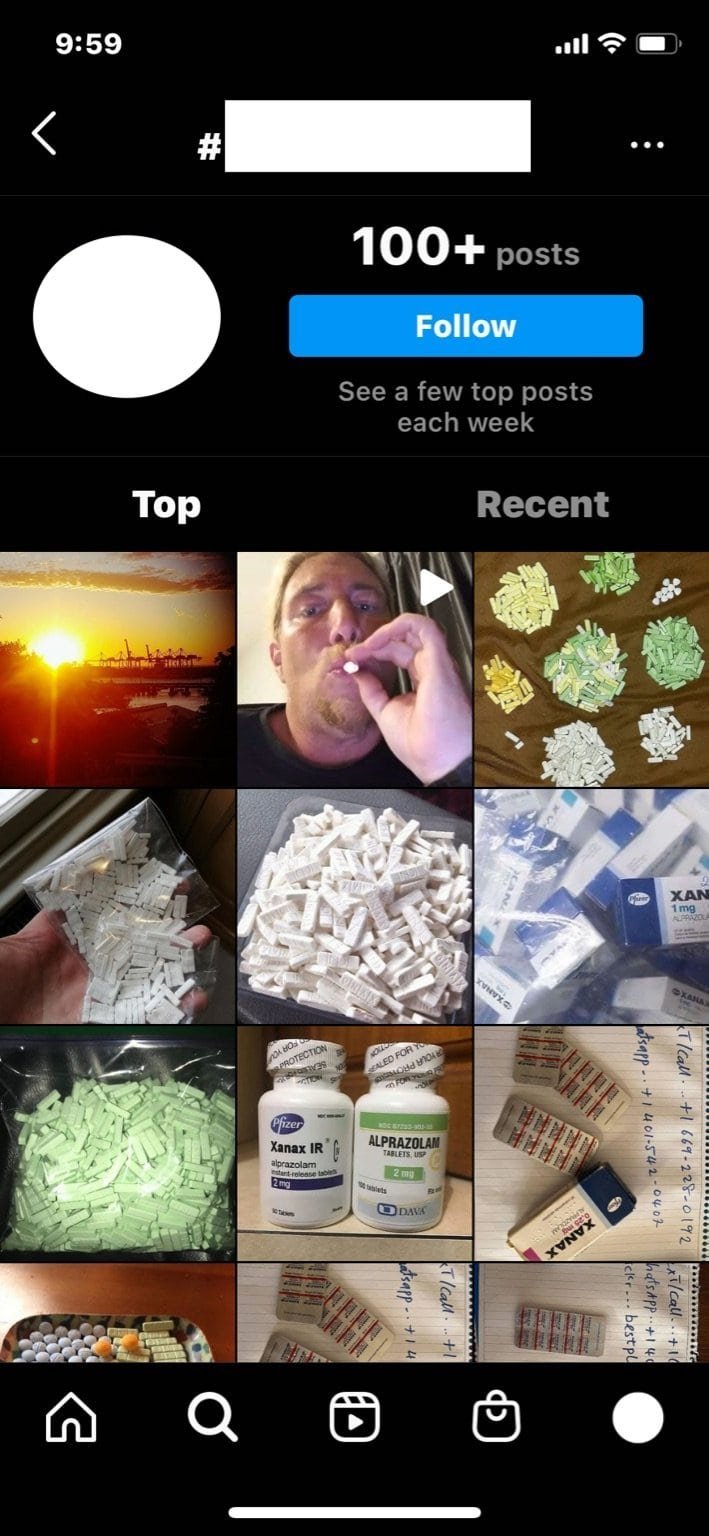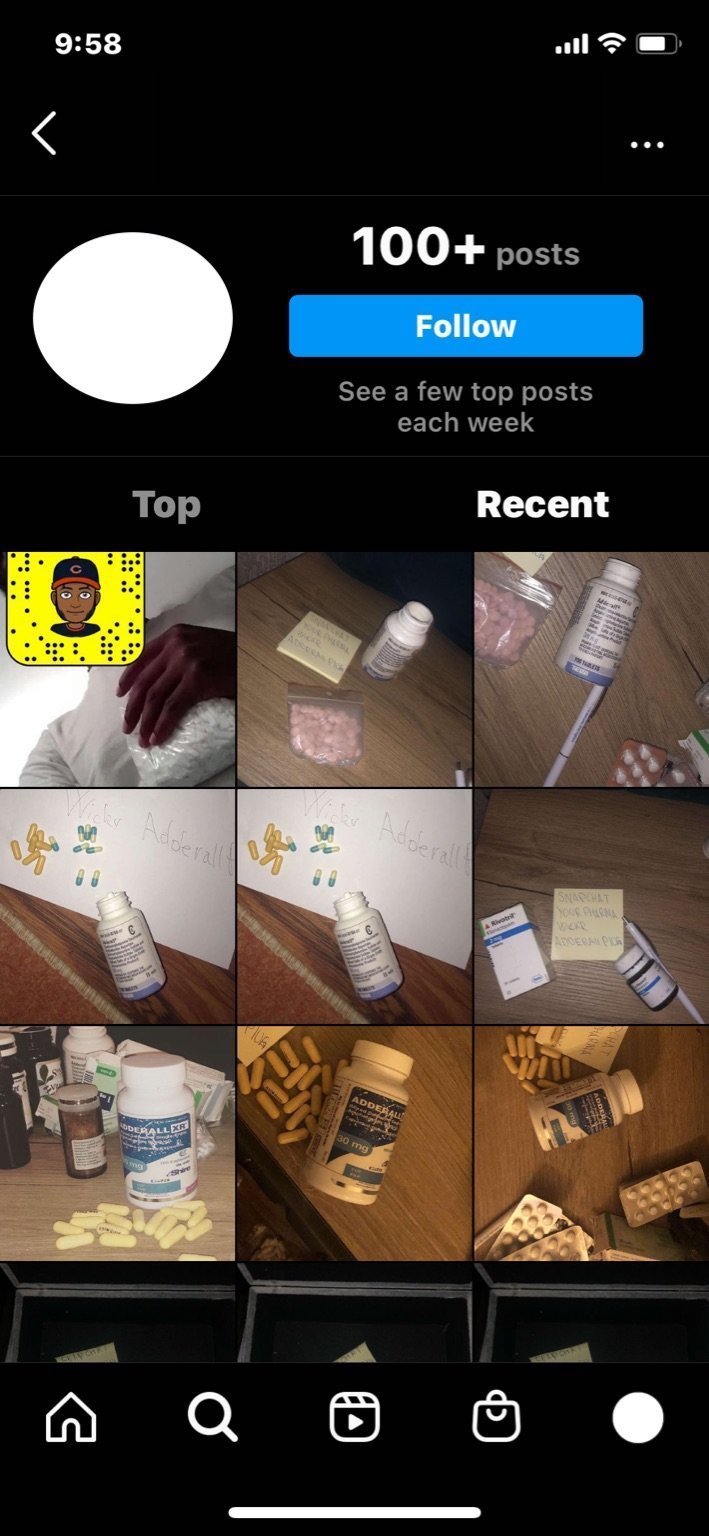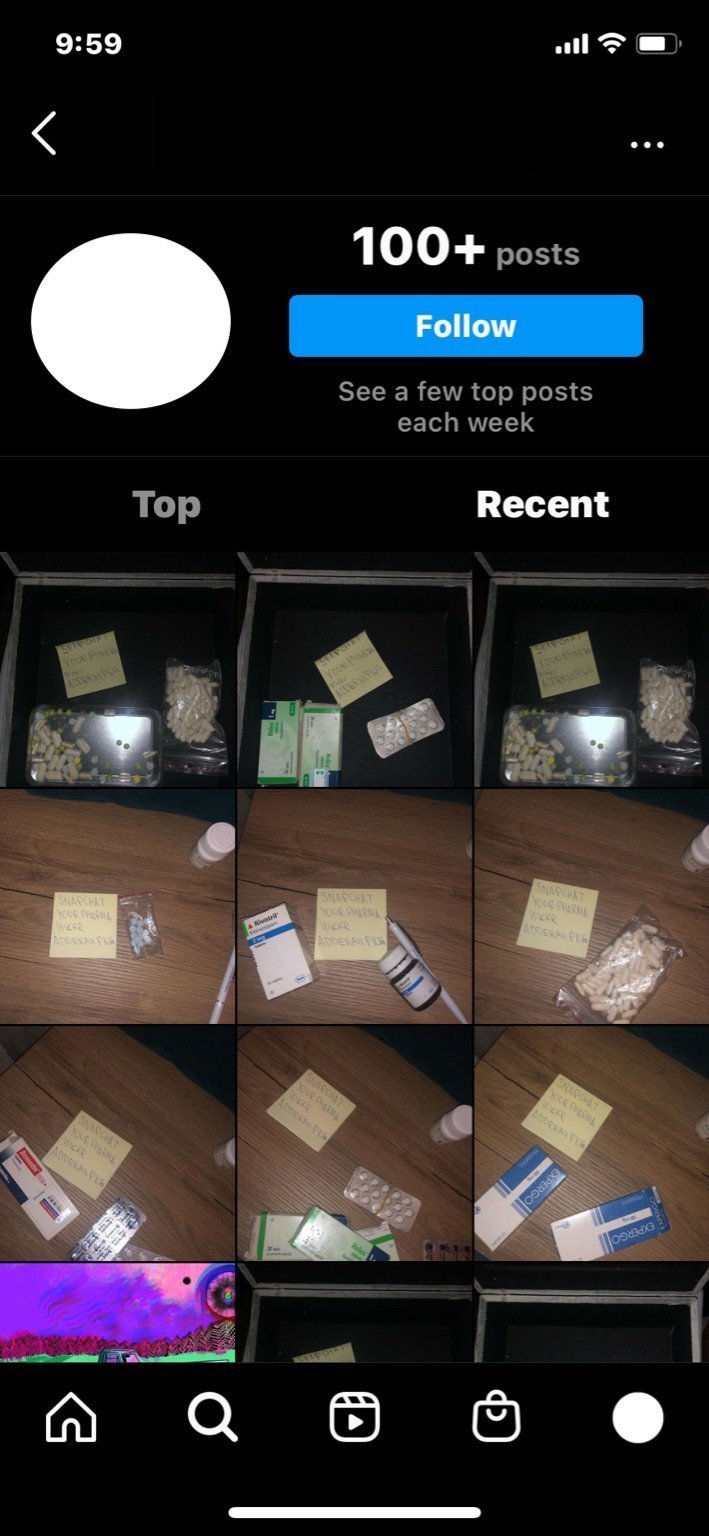Drug Trafficking is Amplified on Facebook, Fueling a Drug Crisis

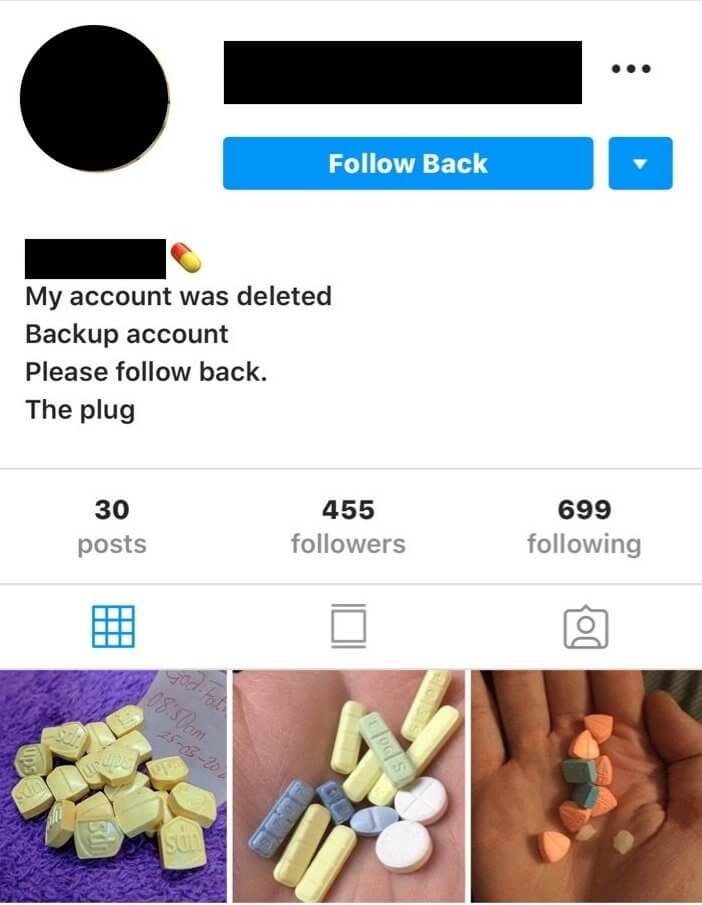

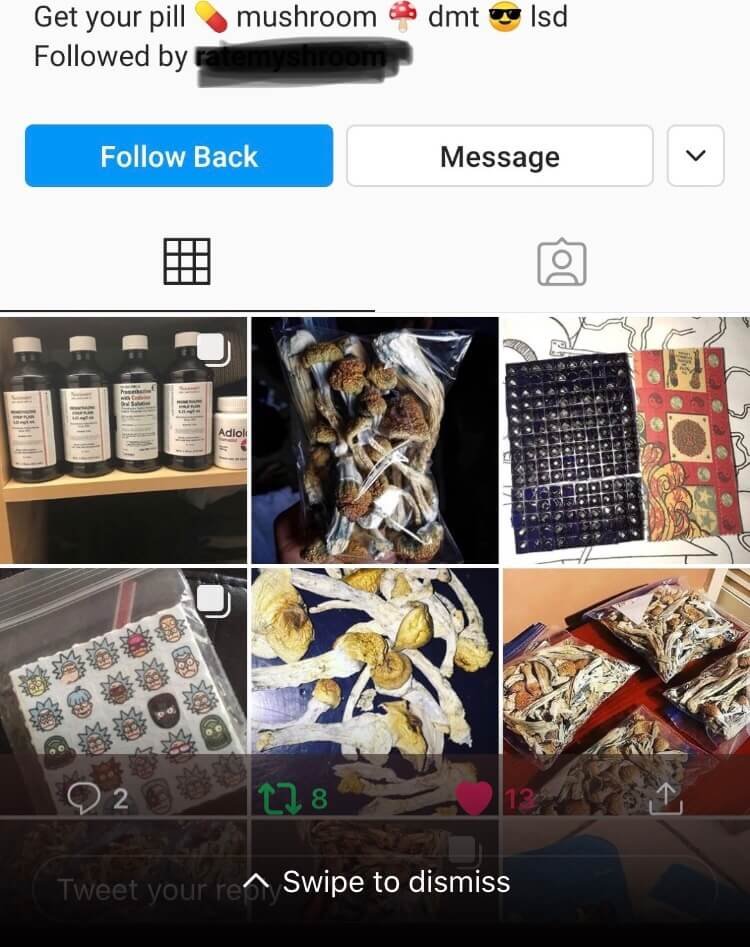



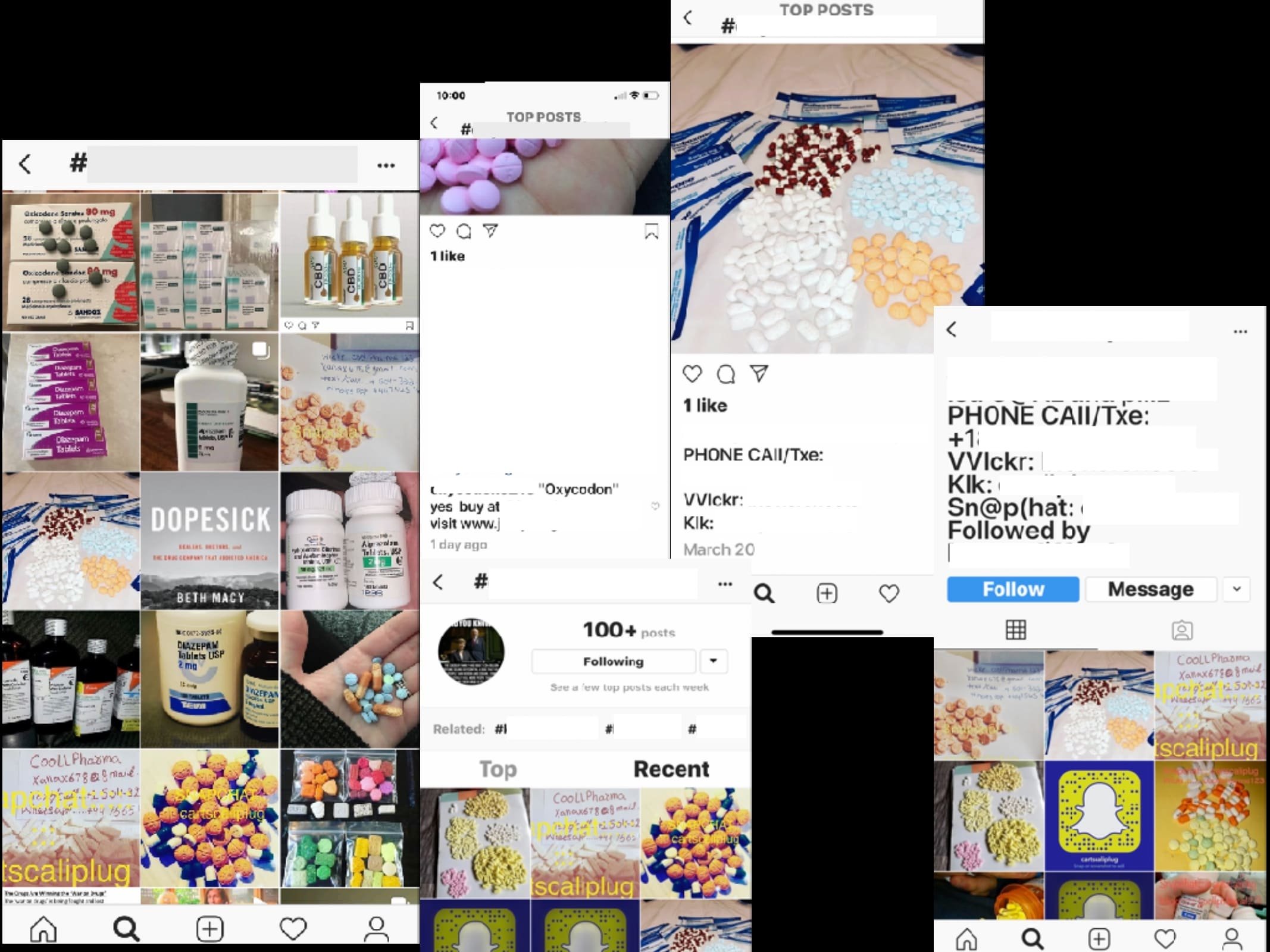
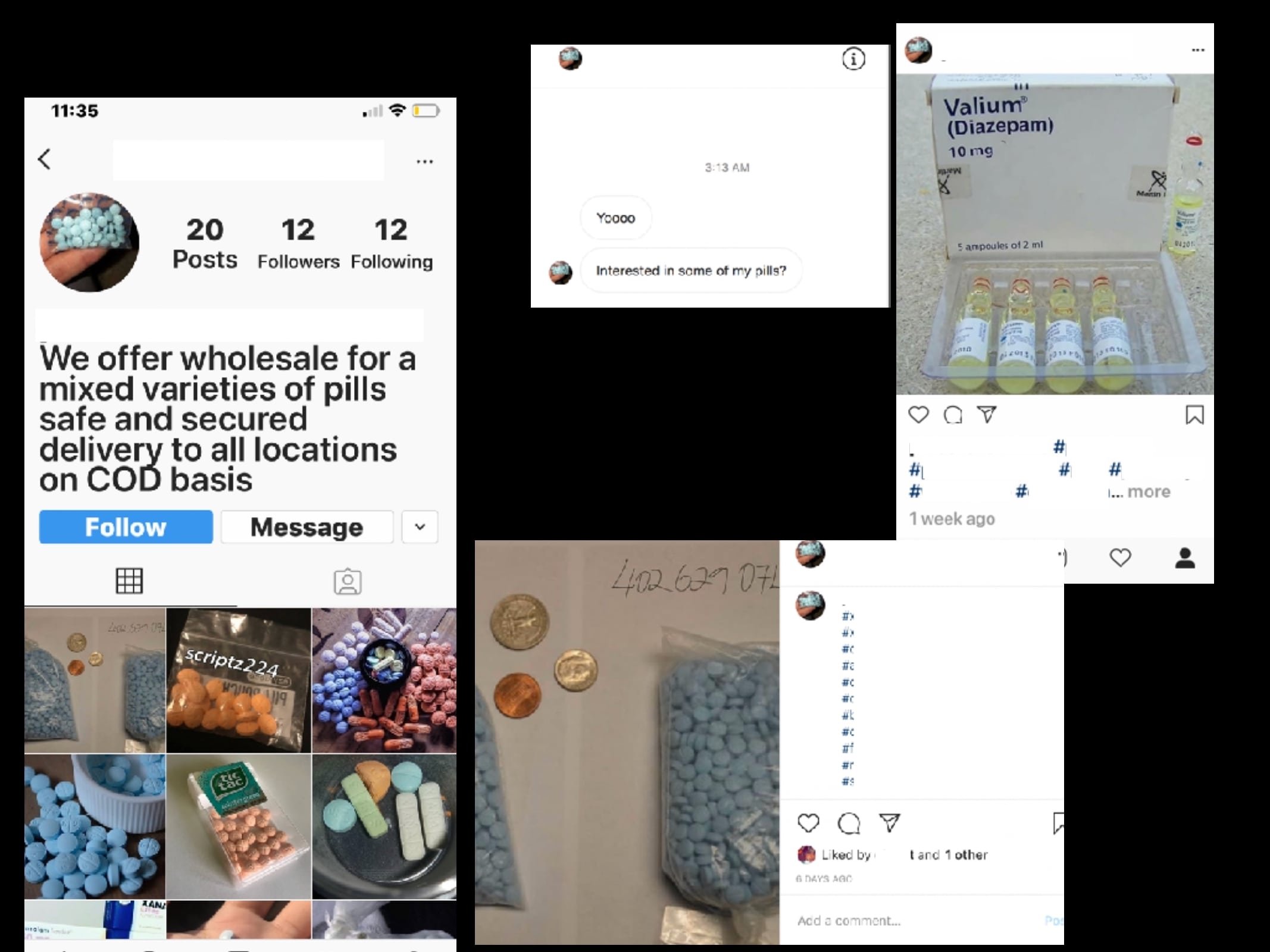
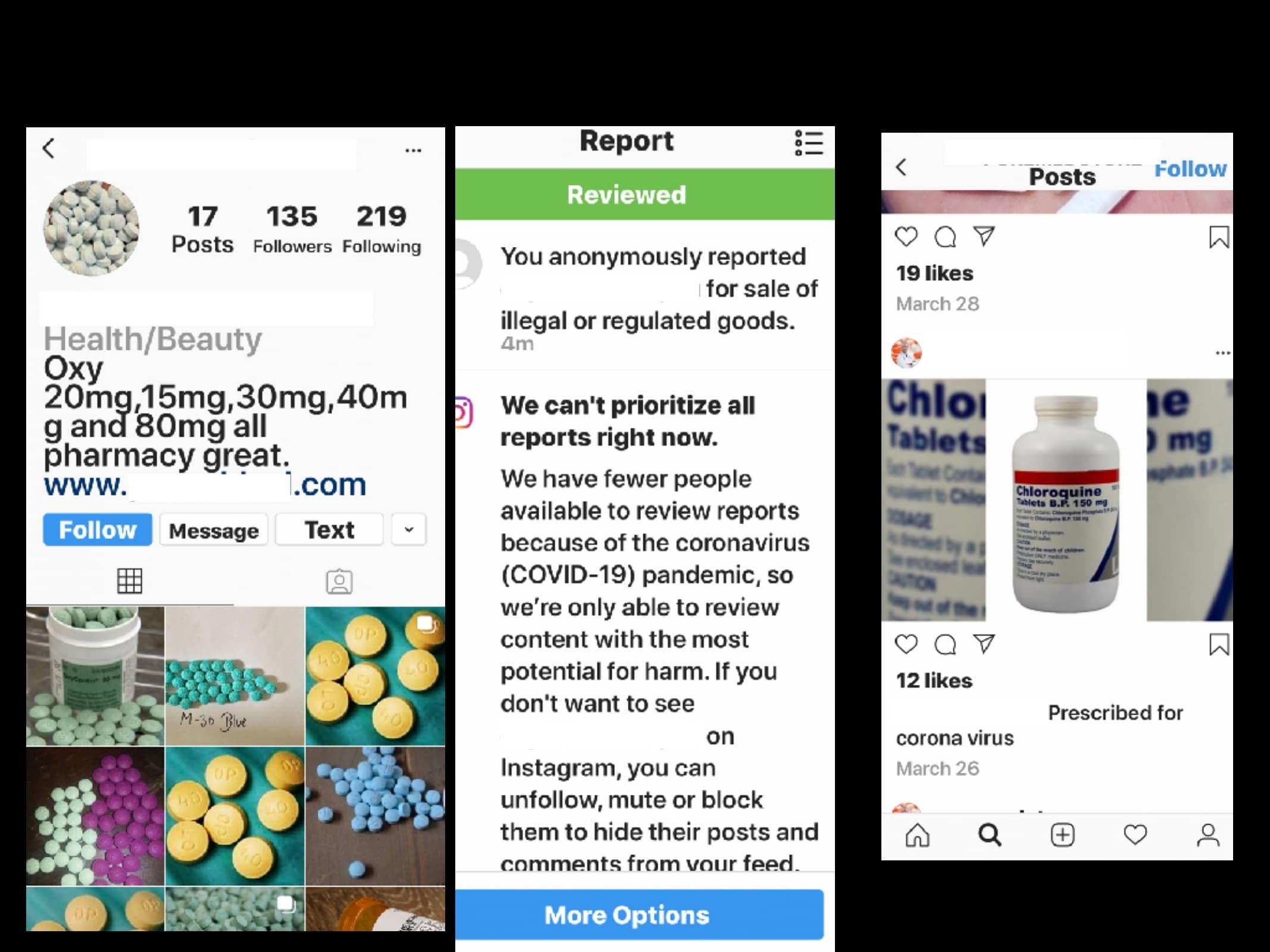
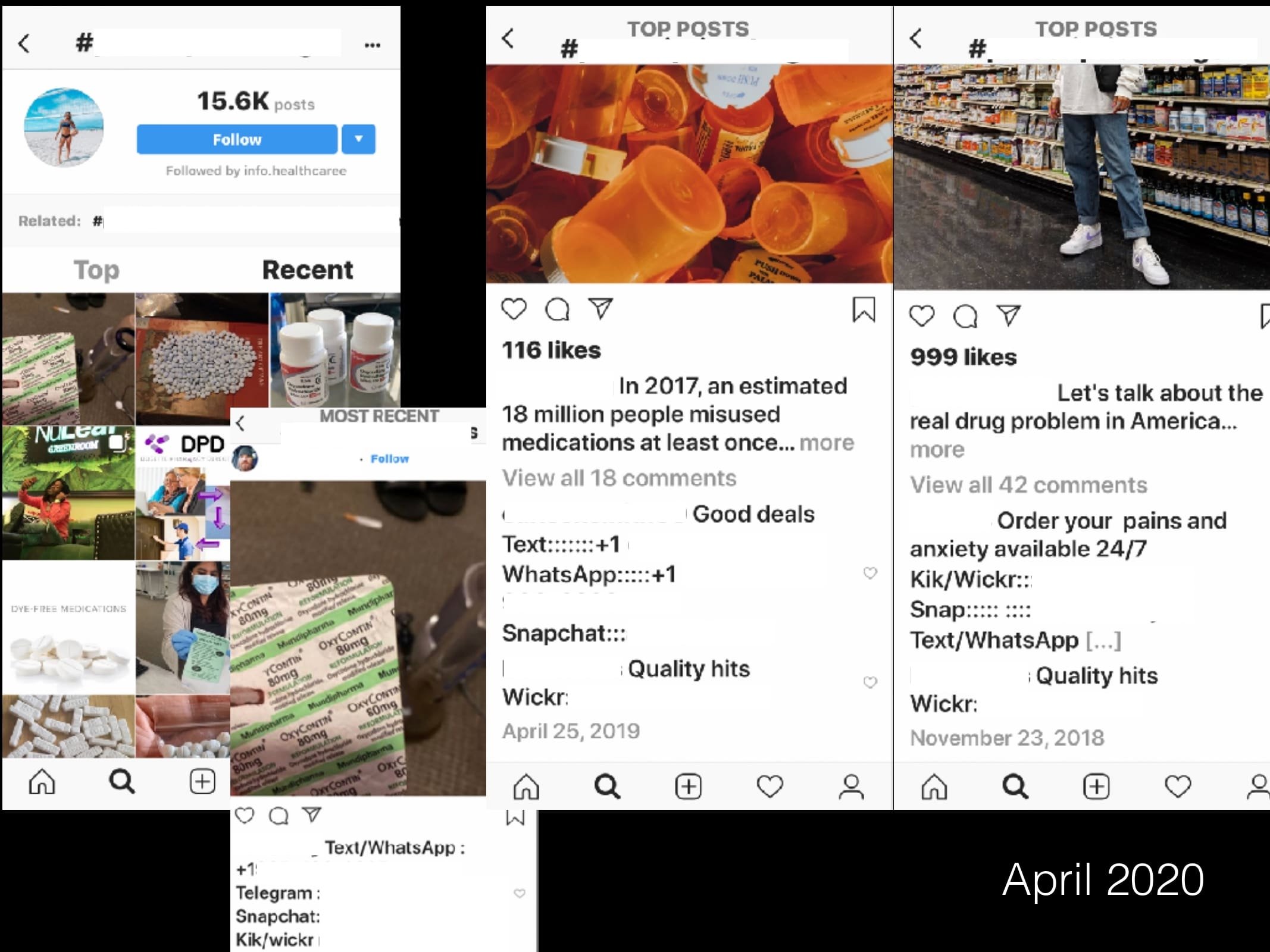
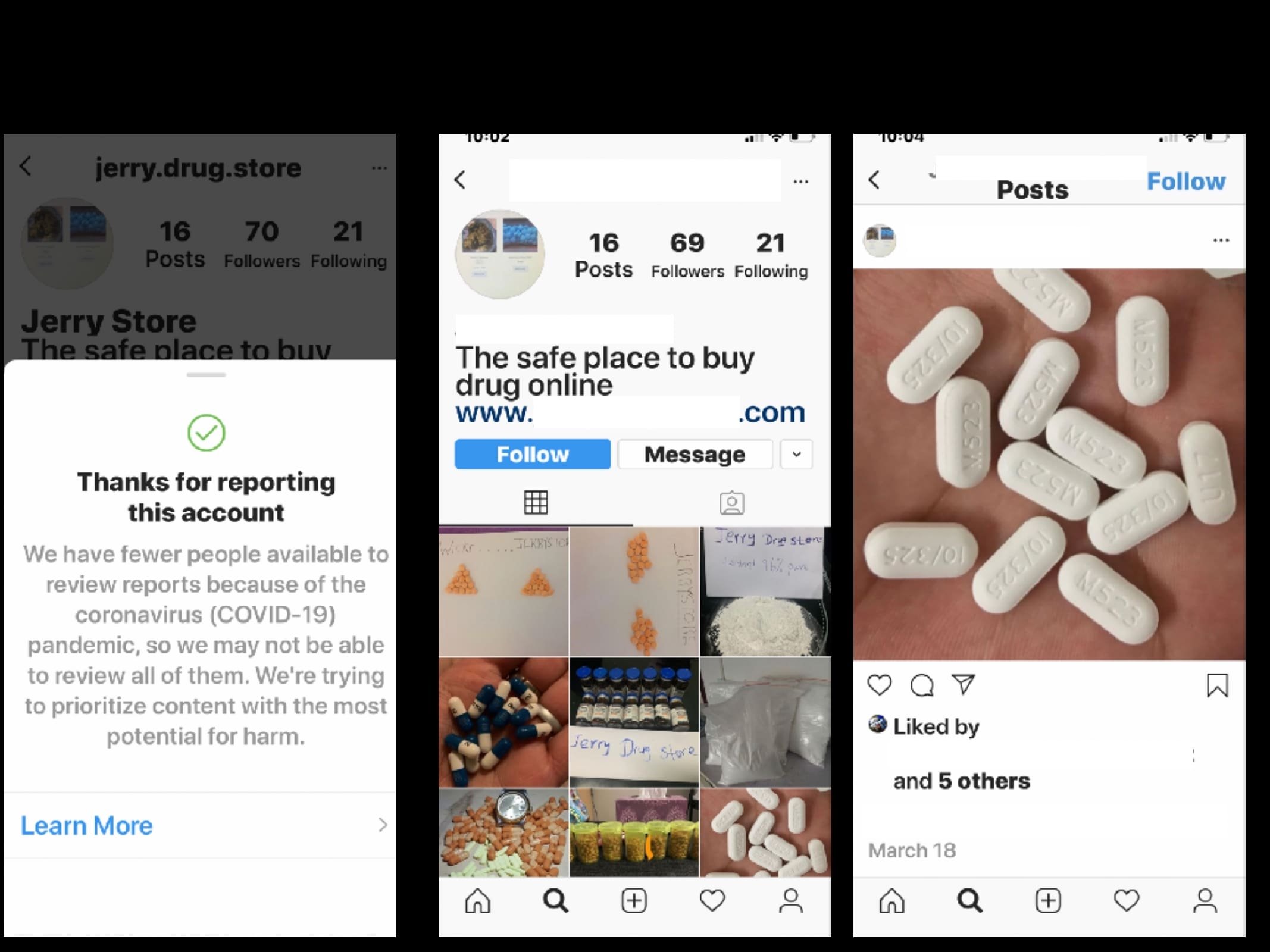



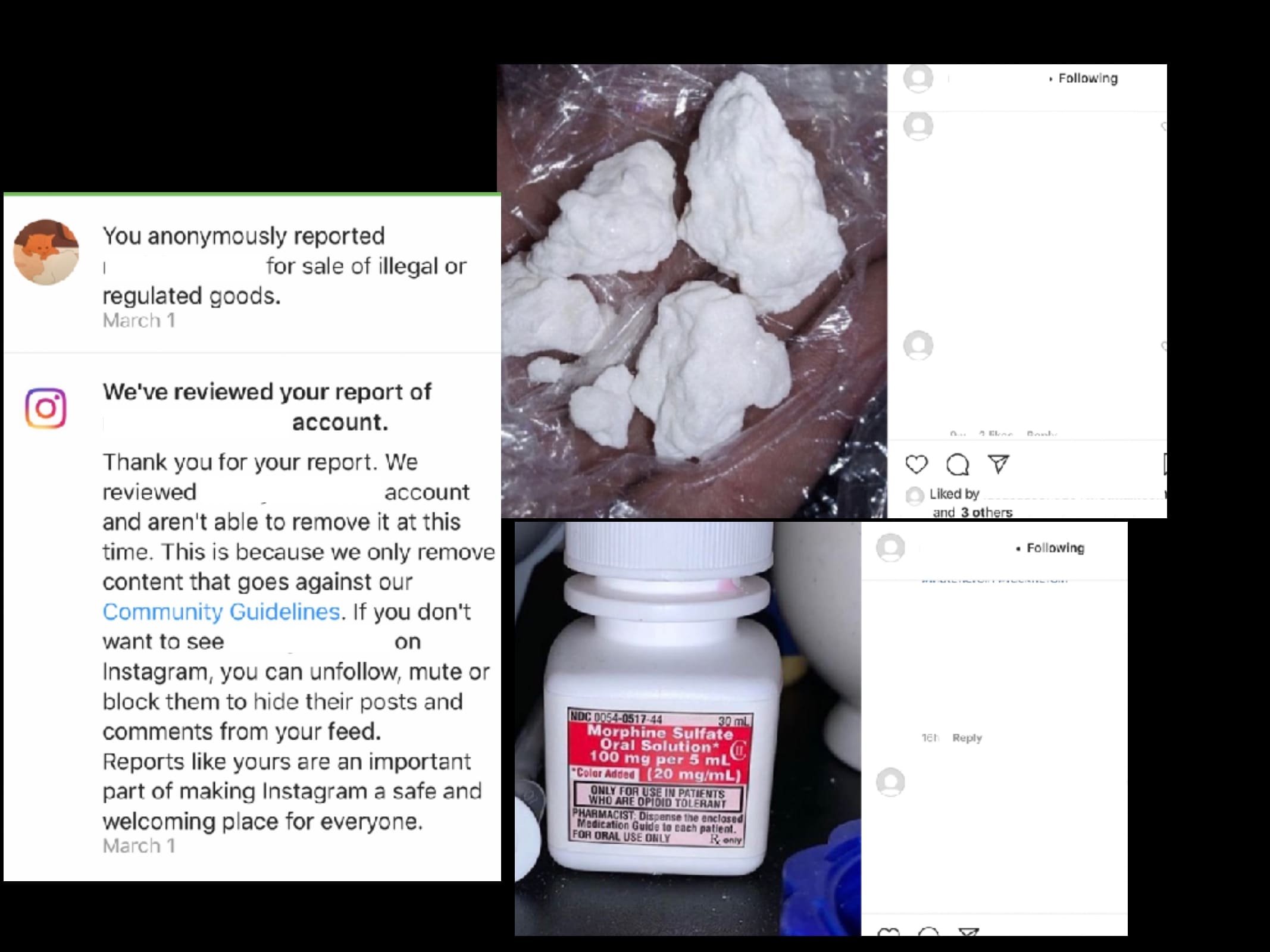
In 2018, ACCO expert Eileen Carey confronted two employees at Facebook Inc. about the quantity of illegal drugs posts on Facebook and Instagram. After repeatedly reporting accounts selling opioids to the company for three years - with few results - she tweeted at Rob Leathern, Facebook’s director of product management:
“The historical response that users can report abuse and moderators will review hasn’t changed in 4 years. Please hold leadership accountable.”
The following day, Leathern responded that the company had removed several associated accounts and tagged Guy Rosen, Facebook’s vice president of product.
Carey went on to thank Rosen in a private message for taking down the posts with the hashtag #oxycontin, but pointed out that about 16,000 posts with the hashtag #fentanyl remained on Instagram.
“Working on it,” Rosen responded. “We won’t fix everything overnight (and I totally recognize we have a lot of catching up in these areas), but we have a responsibility and we will improve. I’ll circle back later this week on this specific once I’ve gotten more up to speed. I do really really appreciate your pings on this. THANK YOU.”
While the two Facebook Inc. employees reacted fast to taking down this illegal drug content once Carey brought it to their attention publicly, in the years since, there has been little action on the part of the company to remove illegal drugs from their platforms.
Fake Online Pharmacies and Illegal Drugs
There are two types of illegal drugs that can be found for sale on social media:
Controlled substances such as insulin or viagra that are sold without a prescription by shady online pharmacies.
Illegal drugs, like heroin or cocaine, that are sold either by small time individual drug dealers or violent criminal syndicates including Mexican Drug Cartels.
No matter the type of criminal, they all take advantage of social media algorithms to target vulnerable populations, including recovering addicts, teenagers and the elderly. Social media platforms then profit from this illegal activity.
Soaring costs for prescription drugs in the United States understandably push people to look for cheaper alternatives online. But this is incredibly risky! Of the 35,000 active online pharmacy websites, only about 5% comply with applicable laws and pharmacy standards. These counterfeit medications - including imitation heart medicine, insulin and steroids - are often advertised to be from Canada but are more likely to be made in and shipped from China and India. They are frequently manufactured in unsafe conditions, contain little or no active ingredients and may contain dangerous, sometimes deadly, substances such as mercury, arsenic, rat poison and/or cement.
Since the Covid-19 pandemic started, the online pharmacy market has shot up with 31% of Americans buying prescriptions online for the first time. These unregulated medications include coronavirus test kits, masks and medications.
Meanwhile, almost 450,000 Americans have died from taking opioids - both prescription and illegal pills - between 1998 and 2018, according to the CDC. The opioid crisis has unfolded in three waves. In the first, doctors over-prescribed legal opioids that drug companies falsely claimed were non-addictive, such as Percocet and Oxycontin. The second wave began when government efforts to stop doctors from over-prescribing these pills drove users to seek street alternatives. Now, in the third wave, the trade has shifted online, and the pills are often laced with fentanyl and other synthetic opioid compounds that are hundreds of times more powerful than heroin. People who die from taking fentanyl-laced pills they buy across social media platforms aren’t overdosing. They are being poisoned.
Illegal Drug Posts on Facebook Dwarf Those on the Dark Web
Drug dealers and fake online pharmacies take advantage of the convenience, anonymity and broad reach of these platforms to push their products.
“Before social media, I usually got about five clients daily,” said Alex (name changed) to ABC News. “Now let’s say I get at least 15 clients a day from Facebook.”
To this day, many people falsely believe that the majority of drug trafficking happens on the Dark Web, when in fact, the quantity of illegal drug sales posts on Facebook dwarfs the amount that the Silk Road ever carried. Back in 2013, when the Justice Department seized the Silk Road, the site featured a mere 13,000 illegal drug postings.
In comparison, Facebook’s Transparency Report for the third quarter of 2020 claims that they found and “took action” on more than 5.9 million illegal drug sales posts from Facebook and Instagram. The report also claims that AI flagged 94% of these illegal drug sales posts before any users reported them (although this number doesn’t include how many times these posts were viewed). Facebook’s 94% “success rate”, however, still means that at least 354,000 confirmed illegal drug sales were reported by users after evading Facebook’s AI systems. In other words, Facebook platforms moved 400 times more drugs than the Silk Road.
These numbers also assume that Facebook is being honest! Our research, which has been corroborated by recent whistleblower accounts, suggests that the firm exaggerates the success of their content removal efforts. The number of illegal drug posts is probably much larger.
How Facebook Enables and Amplifies Drug Trafficking
The problem is that Facebook algorithms are far more efficient at spreading drug content than moderating it. If a user searches for drugs or followers dealers, their algorithms will deliver more drug-related ads, suggested pages and hashtags into the person’s feed, despite their AI system in place to prevent those posts. Even worse, if you search for hashtags about a recovery-related topic, such as #opioidaddiction or #twelvesteps, you will actually be shown posts of drugs for sale. With people spending more time online than ever because of coronavirus, online drug sales have exploded, fueling the U.S. Drug Crisis even further.
ACCO’s Gretchen Peters and Tim Mackey discuss how organized crime has weaponized social media platforms such as Facebook, Instagram and Snapchat on the Today Show with Kate Snow.
Innovative technology solutions are needed to promote public safety and prevent substance abuse behavior. ACCO expert Timothy K. Mackey, a public health professor at the University of California, San Diego, has developed an advanced algorithm to scrape social media platforms and identify drug dealers. As he told Boston Magazine, “Drugs aren’t sold on the block anymore. If you’re a drug dealer who’s not on social media, you’re not where your customers are.”
ACCO is fighting to change the laws to make tech platforms liable for hosting drug dealers and cartels on their platforms. As West Virginia Senator Joe Manchin said to Facebook COO Sheryl Sandberg and Twitter CEO Jack Dorsey, “A lot of people have died receiving information on how to obtain drugs through y’all’s platforms.”
Let’s make the Internet safer! SIGN OUR PETITION



